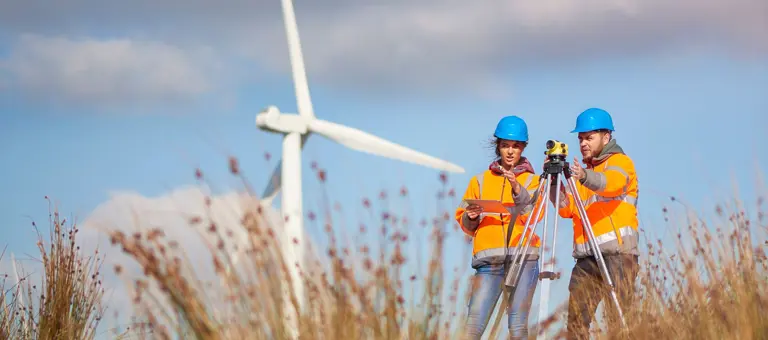
UK Election 2024: How can the UK achieve a net zero power sector?
6 min read 11 June 2024
With the recent announcement for a general election on 4th July 2024, the UK’s decarbonisation pathway has come under focus. The energy transition has been a salient topic for both main parties, the Conservatives and Labour.
In 2021, the current government committed to a net zero power sector by 2035. This was seen as a landmark decision that was designed to boost domestic growth in the sector.
This was put to the test during the Russian invasion of Ukraine which prompted the energy crisis and the subsequent cost of living crisis. These events signalled the need for an accelerated energy transition and have led to the future of energy taking centre-stage in the upcoming elections.
The opposition Labour party have sought to build upon the incumbent’s targets by pledging a decarbonised power system by 2030. The Labour party have explicitly cited an accelerated decarbonisation pathway as being imperative to increasing energy security and affordability. Here the incumbent diverges, as the Conservatives have raised concerns over an accelerated pathway costing the tax-payer too much and leaving the UK’s energy supply chains at risk of international volatility.
In this report, we analyse the party stances towards decarbonisation and why both of their targets remain at risk.
Spurred by the parties’ ambitious targets to decarbonise the power system, we will be releasing a series of pieces following on from this introductory note which will explore four key challenges to reaching a net zero power sector.
- The first issue will be centred around the challenge of deploying a sufficient volume of renewables.
- The second will take a step back and assess the ability of the existing and proposed grid infrastructure to efficiently deliver power for a net zero system.
- The third will discuss the implications of retiring thermal plants and what this requires in system services.
- The fourth, and final challenge, will explore the importance of low-carbon dispatchable technologies and their required deployment for a Net Zero system to cover the periods when renewable generation is low.
Each issue will analyse one of the challenges across five lenses: finance, technical, supply chain, policy, and social cost and affordability. In doing so, we seek to highlight the importance of a thorough and holistic decarbonisation plan in order to come within reach of a net zero power system within the next decade.
Our Experts


Related Insights

Unlocking private capital: scaling investment in the CCS sector
Unlock the next wave of CCS investment. Discover how the financial services sector can scale viable models, reduce risk and mobilise private capital for commercial CCS deployment.
Read more
Did you miss out on Italy's MACSE Auction? Here is why you shouldn’t give up
Developers now face a pivotal decision. Do you learn from these tough results, refine your bid, and compete fiercely in the next MACSE auction, or, pivot to a targeted merchant strategy, capturing value where subsidies won’t reach?
Read more
Podcast - S3-E2 - Decarbonising complex industries
Navigating the challenges of decarbonisation while maintaining energy security.
Read more
Navigating the new domestic decarbonisation landscape
Baringa’s ninth Green Buildings and Transport Forum on 3 December 2025 brought together a range of market players to discuss the future of warm homes.
Read moreIs digital and AI delivering what your business needs?
Digital and AI can solve your toughest challenges and elevate your business performance. But success isn’t always straightforward. Where can you unlock opportunity? And what does it take to set the foundation for lasting success?